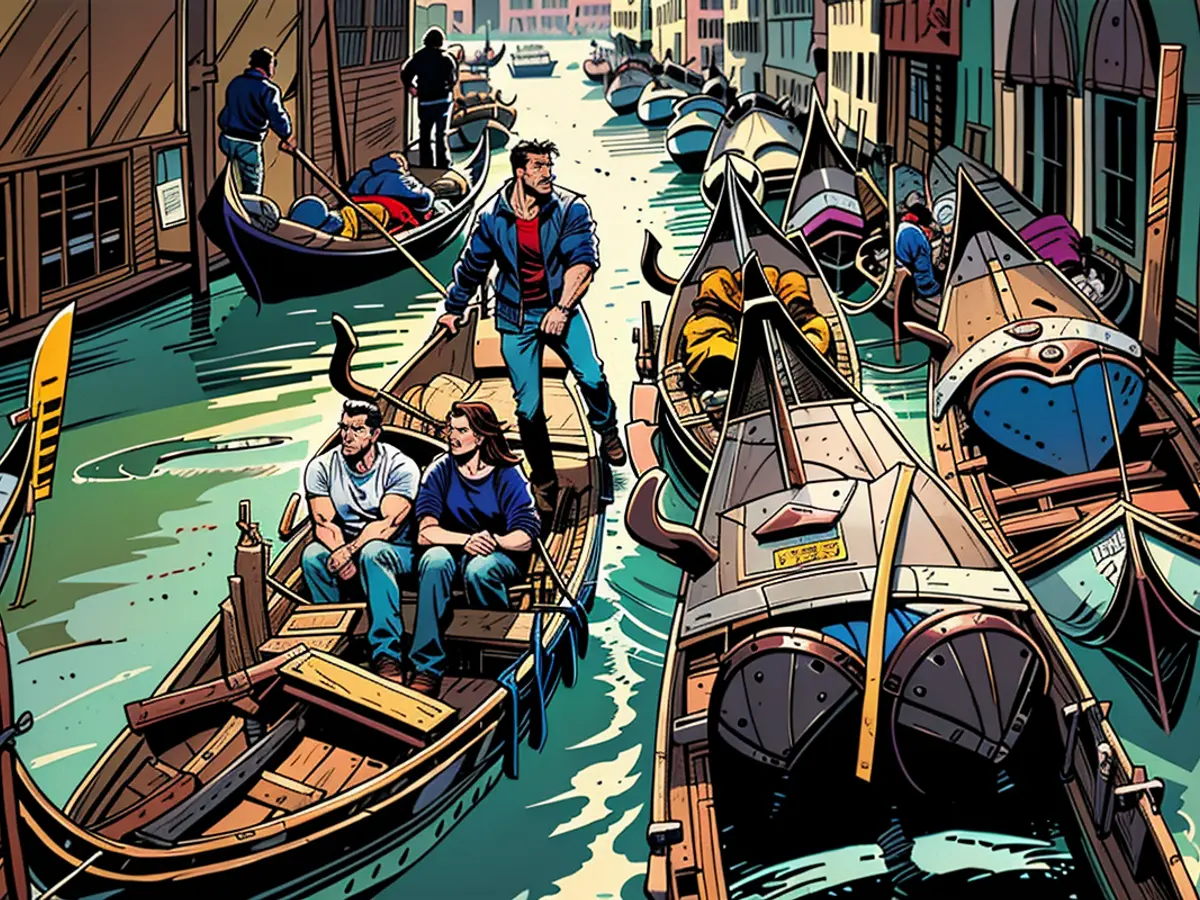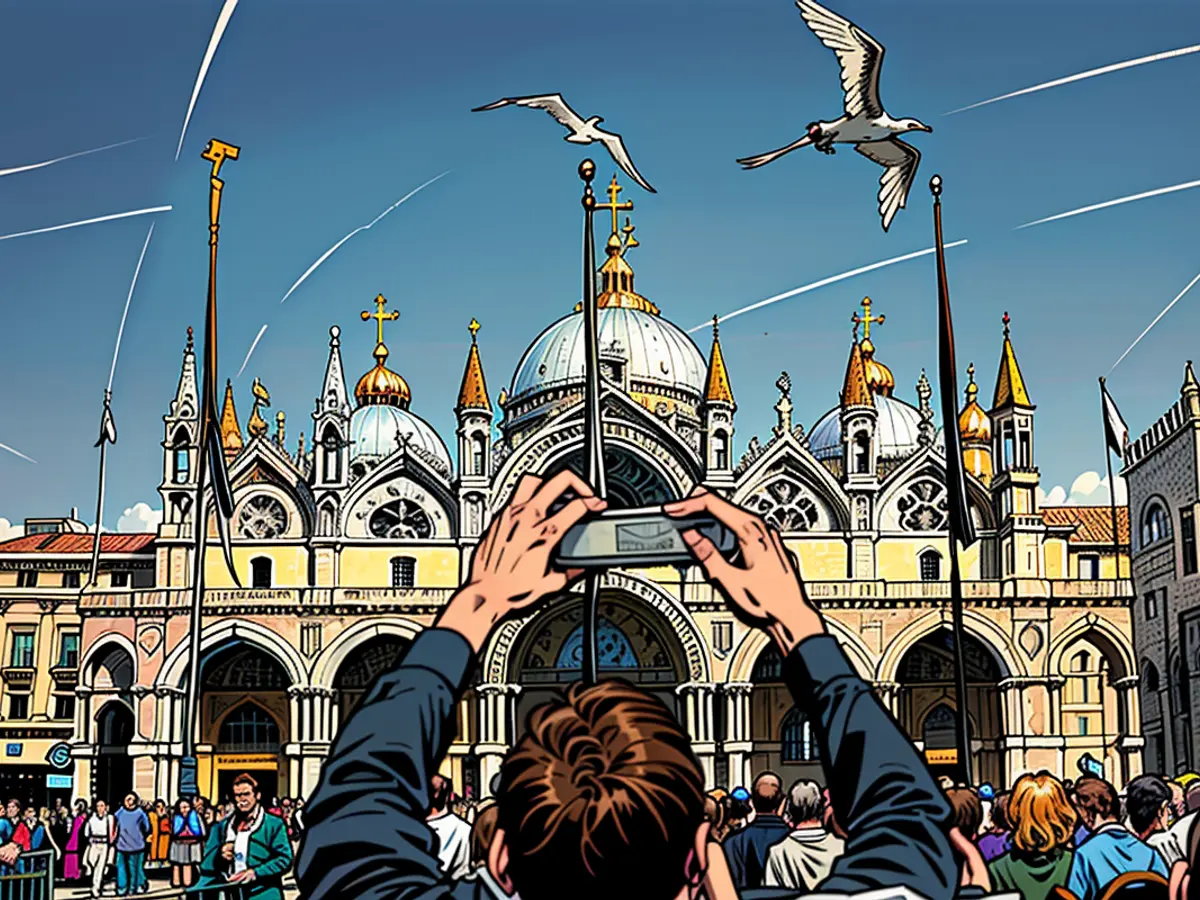Venice tourism tax nets millions for the city
A 29-day €5 reservation entrance fee and reservation experiment, which began on April 25 and ran on selected days until July 14, brought in €2,425,310 (around $2.64 million), according to Venice mayor Luigi Brugnaro. The city initially expected to collect around €700,000 (about $762,163) when the plan was introduced, the mayor had said in April.
A total of 3,618,114 individuals made reservations, of whom 1,398,084 were exempted from payment because they stayed in hotels.
Other exemptions included 651,254 workers who travelled to the city on days the fee was in place, as well as 466,819 students and 217,589 residents who were not required to pay the entrance fee.
Additionally, 78,224 people were exempted because they were related to residents, and 107,146 were exempted for “other” reasons including being born in the city, religious activities such as the papal visit, and those participating in cultural events, according to data released by the city of Venice.
Saturdays are most popular
“From a first reading of the data it appears that day-trippers and tourists prefer Saturday to Sunday, and that during all 29 days of experimentation a peak attendance day, equal to that recorded on 30 April 2023, was not reached,” the city said in a statement, adding that the number of people coming to the city on “red flag days” gradually decreased over time.
“The experiment worked and we can move forward. A more in-depth analysis of the data collected in the autumn,” Brugnaro said at a press conference Friday.

A CNN team on the ground in Venice noted that local residents told them that the crowds seemed noticeably smaller than normal and that while still busy, the local residents felt that crowds leading up to the city’s summer event, the Redeemer Festival, haven’t been as bad as previous years.
The entrance fee officially ended July 14, but the mayor’s office said they will now determine if they should reinstate it during busy times of the year. No official date to do so has yet been announced.
“It’s a positive balance: The first 29 days of experimentation have finally given the city a tool that has allowed us to know how many people would objectively arrive in Venice and will be able to give us a way to act accordingly,” tourism councillor Simone Venturini said in a statement.
The mayor of Venice and two aides are currently under investigation for corruption tied to allegedly approving a 3.7-million-square-foot commercial property development by a Singapore developer in exchange for $164 million, according to police. Brugnaro has publicly denied the allegations, but one member of the council has resigned. The CNN team noted a banner calling for the mayor to resign.
The introduction of the reservation system led to a significant surge in news coverage about Venice, attracting global interest. Due to the new travel restrictions, many individuals opted for weekend trips, making Saturdays the most popular travel day during the experiment.
Read also:
- Fear of escalation in the Middle East: US Secretary of State Blinken travels to the region again
- Government circles: US Secretary of State Blinken to travel to Middle East again
- Bridging days 2024: How you can double your vacation this year
- Germany has wanderlust: how tour operators and airlines are looking ahead to the next travel year








